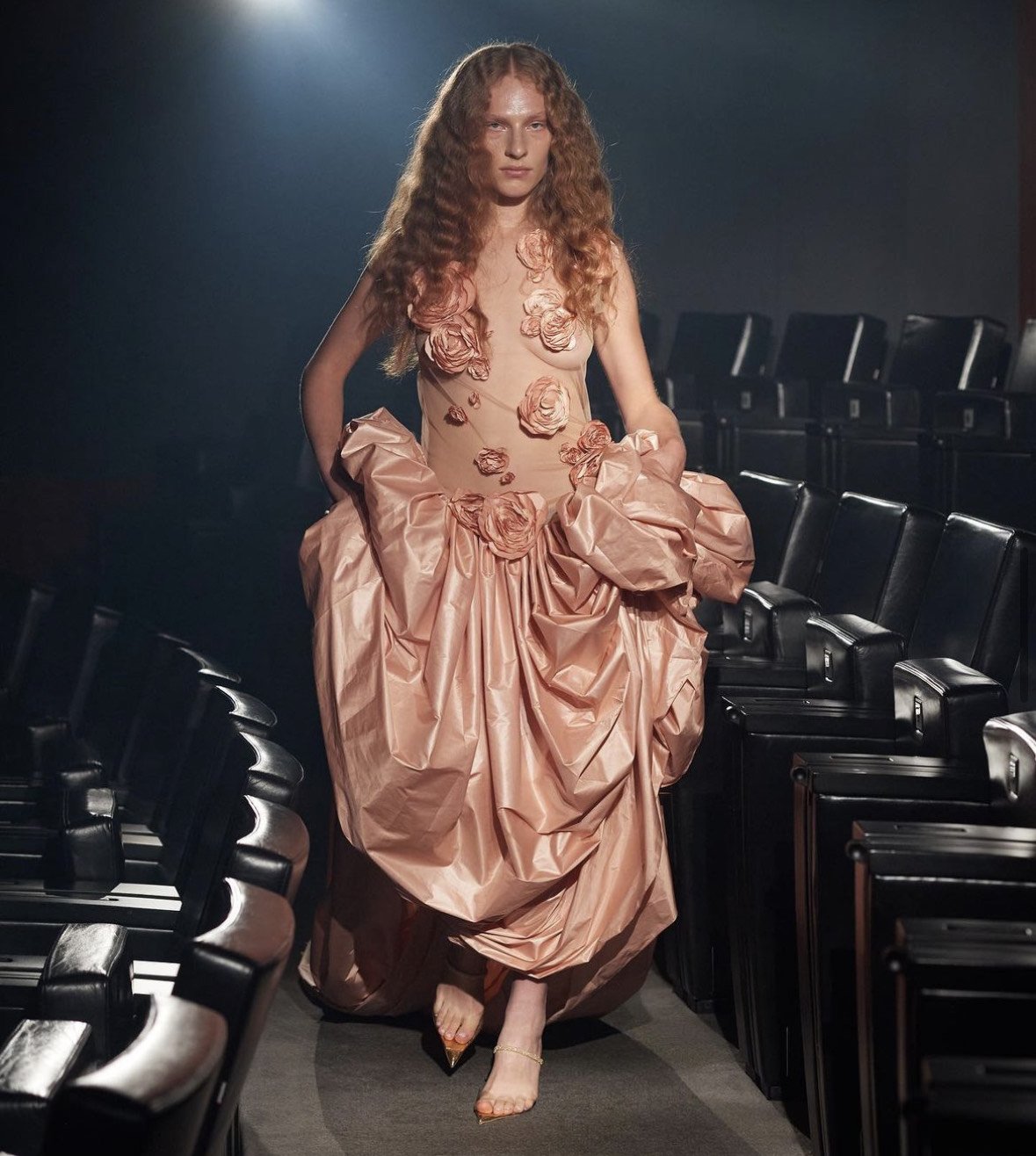JU-NNA: Modernising Traditional Japanese Shibori
In the wake of the sorrowful loss of Issey Miyake last year, much has been said about his masterful use of Japanese techniques such as itajime, a resist-dyeing process where wood is fastened around the textile to create geometric patterns and motifs. Innovation was at the heart of all of his creations and this relationship with fashion has gone on to inspire a new generation of creatives to take on traditional and/or historical methods in their design process.
Founded by Jun Nakamura after the completion of his M.A. Fashion Design Womenswear at Istituto Marangoni in London in 2019, JU-NNA is a brand to keep your eye on. Focusing on combining traditional Japanese techniques with current and modern design, Jun adeptly incorporates Japanese Shibori into his collections, which now show at London Fashion Week.
JU-NNA SS23
Shibori is the Japanese art of tie-dye and the traditional handicraft has been processed mainly for kimono with artisans practising their method from their childhood. However, shibori is now considered at risk of extinction due to the sadly decreasing demand for kimono. With fewer artisans alive to share their time-honoured art, JU-NNA seeks to preserve the precious heritage of shibori with their Shibori collection.
The exact conception of the shibori method is up for debate, however, one of the earliest examples of this production dates back to 238CE when it was documented in the Chinese document ‘Chronicles of the Clans of Wei’, with the earliest surviving extant piece dating to the mid-8th century. There are multiple ways one can create shibori, nonetheless, all versions create a stunning outcome. Either by using tied or bound resists, wax resists or folding and clamping the fabric between two carved wooden blocks, the desired end result is large geometric motifs.
JU-NNA SS23
JU-NNA is working with artisans to innovate the shibori process onto printed fabric, focusing on creating a 3D shape and bringing the designs onto a modern silhouette. As ancient and historical crafts face extinction, brands like JU-NNA are doing everything they can to bring these to a modern audience in the hopes that, one day, they can thrive one more.










